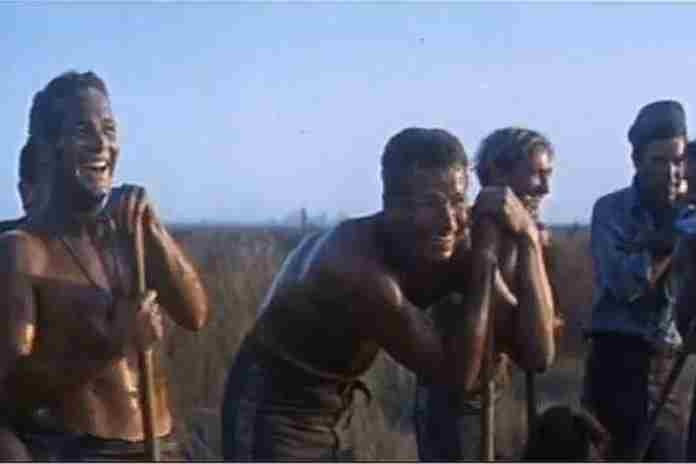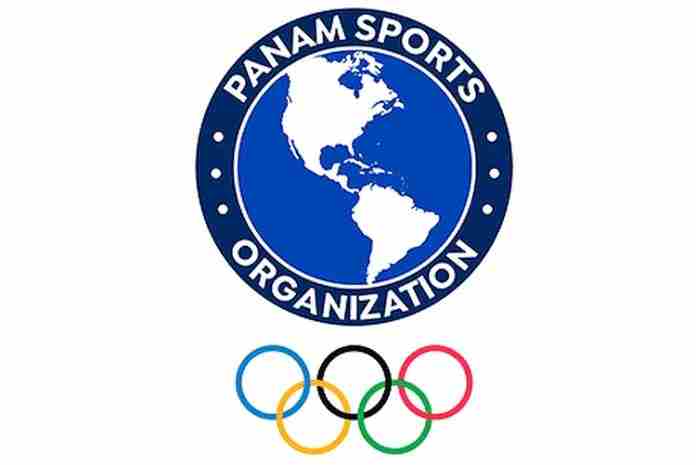“What we’ve got here is … failure to communicate.”
That immortal line came from the iconic 1967 prison drama, “Cool Hand Luke,” starring Paul Newman as Luke and Strother Martin as the Captain, who first delivered those words after Luke’s first escape attempt.
The line comes back in the movie again and again, as now applies to the International Olympic Committee. The IOC is working with the Tokyo 2020 organizers to stage the Games of the XXXII Olympiad this summer with one hand, while dealing with the broad disapproval of the Japanese public to its government’s activities against the coronavirus that has also spread to worry about the Games as a threat to public safety.
And the IOC and its partners in the Olympic Movement, including the National Olympic Committees, are hardly being passive:
● On 6 May, the IOC announced “the signing of a Memorandum of Understanding (MoU) with Pfizer Inc. and BioNTech SE to donate doses of the companies’ COVID-19 vaccine to Games participants from National Olympic and Paralympic Committees around the world. National Olympic Committees (NOCs) will work with their local governments to coordinate local distribution in accordance with each country’s vaccination guidelines and consistent with local regulations.”
● On Tuesday (18th), PanAm Sports confirmed an agreement on Tuesday to provide 4,000 doses of the single-shot Johnson & Johnson vaccine to athletes and officials in the Pan American region headed for Tokyo, including the cost of airfare to come to Miami, Florida for the injection, in cooperation with the University of Miami and the Consulate General of Mexico in Miami.
● Also on Tuesday, the AroundTheRings.com site posted a news release – with the source not disclosed or linked – stating that “The National Ministry of Health, the Ministry of Tourism and Sports and the Argentine Olympic Committee (COA) communicate that the Olympic and Paralympic athletes qualified to compete in Tokyo, together with their coaches and assistants will be vaccinated against COVID-19 prior to the trip to participate in the games, after four years of preparation and training”
and
“It should be noted that countries such as the United States, Russia, China, Japan, Brazil, Germany, Australia, France, Italy, Spain, Mexico, Colombia and Peru have already started or will start vaccination plans aimed at athletes who have qualified for the competition.”
● On Wednesday (19th), the latest meeting of the IOC Coordination Commission was held online, accompanied by an open letter from Commission Chair John Coates (AUS) that noted in pertinent part:
“The [IOC] President confirmed that as many as 75 per cent of the residents of the Olympic Village are already vaccinated or have secured vaccination. And we have good reason to believe that this figure will be well over 80 per cent at the time of the Games.”
At the same time, the online petition to cancel the Games from a former, three-time candidate for Tokyo Governor has run out of steam. It gathered 200,000 signatures in its first 49 hours and 23 minutes from 5-7 May, and only 175,000 additional signatures as of 2 p.m. Japanese time on Thursday, 20 May, across the following 13 days. The petition attracted about 5,000 signatures over the last 49-plus hours, hardly a flood.
There will be more announcements coming, day by day, to try and shore up support for the Games:
● On Thursday in Tokyo, Kyodo News reported that the organizing committee, which had originally expected about 180,000 official visitors for the Olympic and Paralympic Games, now expects the total to be not more than 78,000, with further reduction possible (probable, actually).
● Look for more National Olympic Committees to announce that their entire delegations will have been vaccinated prior to arriving in Japan for the Games, amid even stricter regulations to be imposed on Olympic visitors to Japan in the third version of the IOC’s “playbooks,” coming in June.
● It will be little surprise if the Tokyo organizers confirm that no spectators will be allowed to attend the Games. This decision is due around the end of this month.
All of these actions make sense, all are or will be welcomed, but will have only limited effect on the view of the Games by the Japanese public if the overall coronavirus situation does not improve, at least in the Tokyo area.
This is, for the most part, due to public concerns about the virus, but also to the difficult communications challenges faced by the IOC and the rest of the Olympic Movement. The coronavirus makes promotional events, rallies and public programming impossible and news releases, videos and social media postings are passive, not active, responses.
The stern and austere Tokyo Games will come and go over the next 82 days, when the Closing Ceremony will be held, followed by the much smaller Paralympics that will end on 5 September. Then the work will start.
The IOC will get no rest as the debate over the staging of the 2022 Winter Games in Beijing next February is already hot, with calls from activists in and around China for boycotts, and National Olympic Committees and others standing for the right of athletes to compete apart from the issue of host country policies, no matter how horrific.
But then there will be more than two years until Paris 2024 and an opportunity for the IOC to get its message out in a clearer way. But videos on the Olympic Channel, news releases on Olympic.org and Twitter traffic will not get the IOC to where it wants to go.
Although not created for this purpose, the formation of the IOC’s Future Hosts Commissions for the Olympic and Winter Games offers an opportunity to change the way future Games opportunities are understood.
Take the 23 March 2021 vote of the Brisbane City Council to support hosting the Games of the XXXV Olympiad in 2032. It passed by 24-1, with Queensland Greens Party member Jonathan Sri voting against it.
Sri explained at length why he voted against the proposal, regurgitating the old criticisms against the Games, many of which have been targeted by current IOC chief Thomas Bach (GER):
● The Games are so expensive they now draw no interest, so why should Brisbane bid? In fact, when Brisbane was identified as the “targeted” bidder for 2032, there were howls from multiple countries, including Germany, Hungary, Qatar, India, a possible joint bid from the Koreas and others.
● The Games are too costly, then going on to criticize the Australian plan – not requested by the IOC – to spend up to A$1 billion on expanding an iconic, existing stadium and creating a civic plaza and public transit link for the area (which is in Sri’s own district!). That’s not the IOC’s doing; in fact, the IOC is not especially in favor of this, and neither is Sri, even with the benefits for his own constituents!
● The Games are an environmental disaster because a lot of people will attend. So, you’re against tourism, right, Mr. Sri? Ready to vaporize one of Australia’s important employment centers?
● Residents will be locked down during the Games, with “dramatic curtailments of basic civil liberties.” Sounds like Sri needs to speak with his own police force, not the IOC. You are a Council member, right?
● The cost of housing, short-term and long-term, will go up because the Games will make Brisbane a more popular area. Count on the Greens to be against anyone doing better, unless it’s them.
● “Given the current state America is in, an Olympics budget that depends on a big chunk of the money flowing in via American broadcasting rights agreements and American tourists looks pretty risky.” Sri failed to note that the IOC’s rights agreement with NBC already covers the 2032 Games, as do many TOP sponsor agreements.
● The 2032 Games will be a distraction from more important work. Sounds like the Greens need more votes, right mate? That’s your business, not the IOC’s.
Sri’s comments resonate among those – like himself – who don’t know what the actual bidding situation is, the actual commitments the IOC has made to Paris, Los Angeles and for 2032 and the IOC’s much-changed stance on spending, sustainability, gender equity and other issues.
This failure to communicate is an unsurprising result of the lack of any significant public IOC involvement with potential bid cities, regions or countries. Australian IOC member Coates, who was an important member of the Sydney organizing committee for the 2000 Games, has been visible, but as a promoter of the 2032 bid. As an explainer of the IOC’s bid policies, his credibility is compromised in his home country.
But the IOC has multiple, accomplished members on its Future Host Commissions. Norway’s Kristin Kloster Aasen – a 10-year Board member of the environmental energy & technology providers association Green Business AS – chairs the 10-member Games of the Olympiad group, along with members from Canada, Cape Verde, Croatia (former Croatian President Kolinda Grabar-Kitarovic!), China, Dominican Republic, Brazil, Italy, Kenya and New Zealand.
Romania’s Octavian Morariu chairs the 8-member Winter Games group, with members from Afghanistan, Chile (the impassioned PanAm Sports chief Neven Ilic), Sweden, Austria, China, Switzerland and the Netherlands.
(Update: Thanks to reader Greg Harney for correcting Ilic’s nationality!)
Where are they on the speaking circuit in front of national-regional-local government associations across the globe? Finance ministers on all governmental levels in possible host countries? The Association of National Olympic Committees and regional NOC associations?
Along with IOC Olympic Games Executive Director Christophe Dubi (SUI), they could make formidable presentations, backed up by the publicly-available Host City Contracts and IOC commitments through Olympic Agenda 2020 and Agenda 2020+5.
The rules for staging an Olympic Games are changing dramatically in Tokyo, and Paris 2024 and Los Angeles 2028 have signaled their willingness to change the way the Games are organized to maximize public benefits. LA28, for its part, has committed $160 million to waive participation costs for youth in the City’s Recreation and Parks Department program through 2028 thanks to its agreement with the IOC.
Does Sri know about this? No doubt the answer is no. That’s a failure in communication that only persistent, person-to-person presentations can change, starting about a year from now.
As the Captain said in “Cool Hand Luke”: “Now, it’s all up to you.”
Rich Perelman
Editor
You can receive our exclusive TSX Report by e-mail by clicking here. You can also refer a friend by clicking here, and can donate here to keep this site going.
For our updated – as of 1 May – 506-event International Sports Calendar for 2021 and beyond, by date and by sport, click here!

























